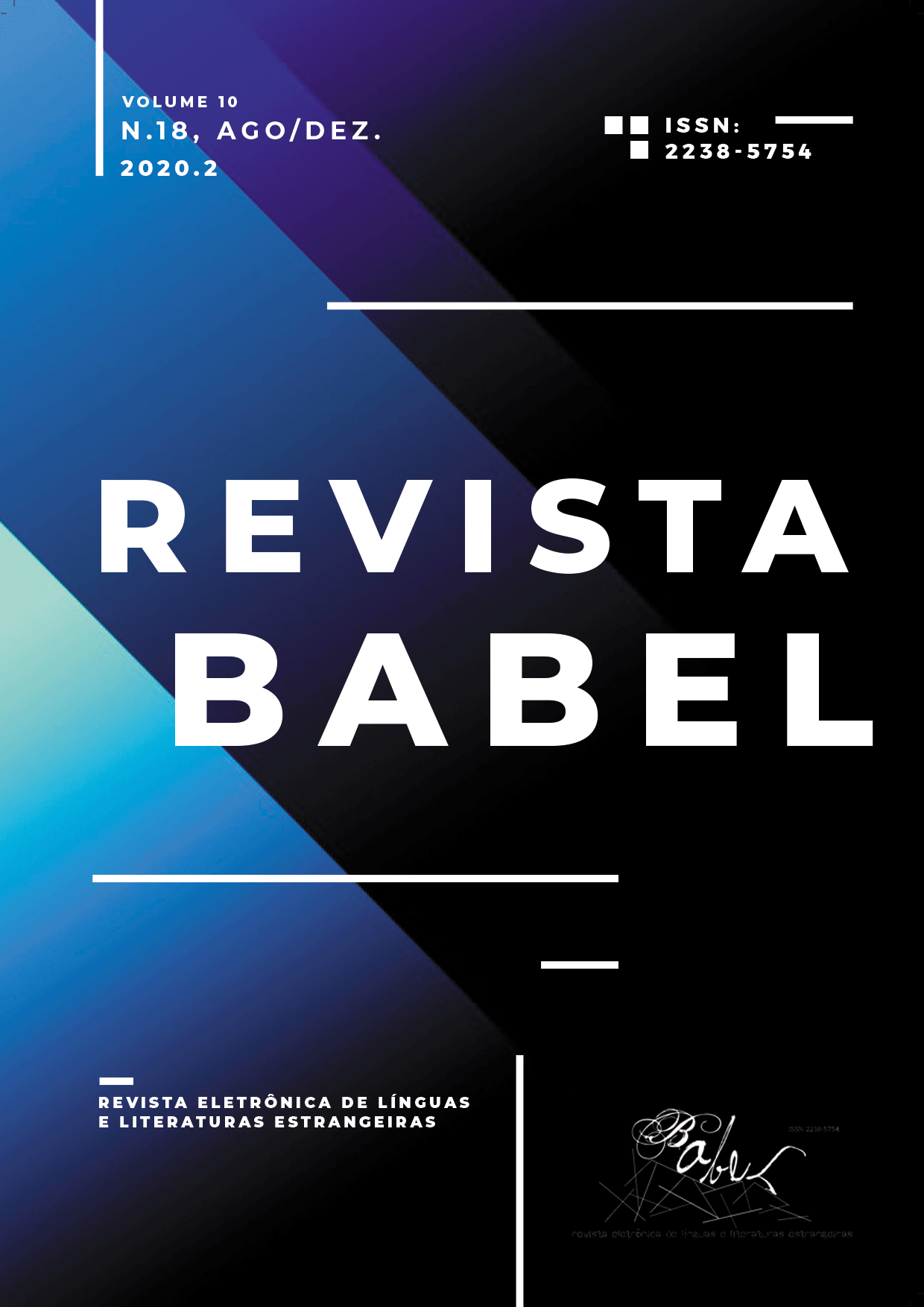The Lyric genre in English classes and the writing as a process
DOI:
https://doi.org/10.69969/revistababel.v10i2.9801Keywords:
Pedagogical proposal, Lyric genre, Writing skillsAbstract
Literature in English language classes may provide a variety of language teaching activities since we can find different literary productions that can be used, discussed, and well directed, in order to achieve a proposed goal for teaching and learning. However, we notice that literature is not used in schools in Brazil effectively, mainly in public institutions. Most of the time, that happens by virtue of few hours to work appropriated teaching methodologies by language teachers (SCHMITZ, 2009), and by the lack of qualification and interest of teachers themselves to work with literary productions in their classes. With regard to the poems, representations of the lyric genre, there is a significant lack of interest in use them, because of the difficulty of interpretation that we can see in these kinds of texts as well as by the politeness and the cultism found in them usually. (PILATI, 2017). Nevertheless, poems might become valuable tools for the improvement of the target language if English teacher is interested and encouraged to think in different ways to use them, taking into consideration the classroom and students’ contexts. In this sense, this work aims to present a pedagogical proposal elaborated for the use of lyric genre in the English language classes that is supposed to help students to develop their written skills. This pedagogical proposal is formed by four classes in which students will work with lyric genre productions and will be stimulated to write in English language. This proposal is based on writing as a process.
Downloads
References
AMORA, Antônio Soares. Introdução à teoria da literatura. 13º ed. São Paulo: Cultrix, 2006.
ANTUNES, I. Lutar com palavras: Coerência e coesão. São Paulo: Parábola Editorial, 2005.
BRASIL. Parâmetros Curriculares Nacionais: Linguagens, Códigos e suas tecnologias. Brasília: MEC, 2000.
BRUMFIT, C. J., & CARTER, R. A. Literature and language teaching. Oxford: Oxford University Press, 1987.
CANDIDO A. O direito à literatura. In: Vários escritos. São Paulo: Duas Cidades/Ouro sobre Azul; 2004. p. 169-91.
DIONÍSIO, Â. P.; MACHADO, A. R.; BEZERRA, M. A. (Org.). Gêneros textuais & ensino. São Paulo: Parábola, 2010.
HARMER, J. The Practice of English Language Teaching. 4º ed. London: Longman, 2007.
HOLDEN, S. O ensino da língua inglesa nos dias atuais. São Paulo: Special Book Services Livraria, 2009.
KOCH, I. V.; ELIAS, V. M. Ler e escrever: Estratégias de produção textual. 2º ed. 3º reimpressão. São Paulo: Contexto, 2015.
LAZAR, G. (1990). Exploring Literary Texts with the Language Learner., 30s, 773-75.
LIMA JR., R. Ensino comunicativo da leitura e da escrita. In: CUNHA, A. G. da; MICCOLI, L. (org.). Faça a diferença: ensinar línguas estrangeiras na educação básica. São Paulo: Parábola, 2016.p.120-141.
MITTAL, R. Teaching English through poetry: a powerful medium for learning Second language. IOSR Journal of Humanities And Social Science, Volume 19, Issue 5, Ver. III (May. 2014), pp. 21-23. Disponível em: http://www.iosrjournals.org/iosr-jhss/papers/Vol19-issue5/Version-3/D019532123.pdf. Accesso em: 02 mai. 2020.
MOISÉS, M. A criação literária: poesia e prosa. Ed. ver. e atual. São Paulo: Cultrix, 2012.
OLIVEIRA, L. A. Aula de inglês: do planejamento à avaliação. São Paulo: Parábola editorial, 2015.
PILATI, A. Poesia na sala de aula: subsídios para pensar o lugar e a função da literatura em ambientes de ensino. São Paulo: Pontes editores, 2017.
ROBERTSON, K. Reading Poetry with English Language Learners. 2009. Disponível em: http://www.readingrockets.org/article/reading-poetry-english-language-learners. Accesso em: 02 mai. 2020.
SARMENTO, L. L.; TUFANO, D. Português: Literatura, gramática e produção de textos (manual do professor). São Paulo: Moderna, 2010.
SCHMITZ, J. R. Ensino/Aprendizagem das quatro habilidades linguísticas na escola pública: uma meta alcançável?. In: LIMA, Diógenes Cândido (org). Ensino e aprendizagem de língua inglesa: conversa com especialistas. São Paulo: Parábola Editoria, 2009. p. 13-20.
WHITE, R.; VALERIE, A. Process writing. Essex: Addison Wesley Longman Ltd, 1991.
Downloads
Published
How to Cite
Issue
Section
License
Os autores detém os direitos autorais sem restrições, porém ao submeter os originais, concordam em transferir a este periódico os direitos da primeira publicação. Isto deve ser informado em caso de nova edição do texto. As produções que derivarem deste material, devem obrigatoriamente citar a fonte. Os textos publicados nesta revista, salvo indicações contrárias, encontram-se sob uma licença Creative Commons Atribuição 4.0 Internacional.

